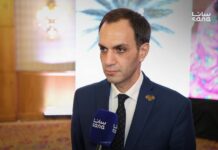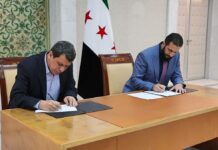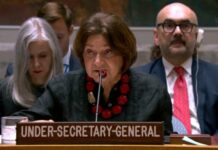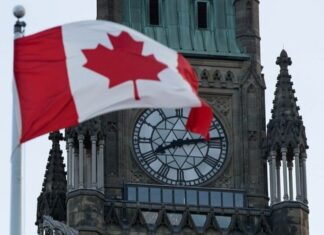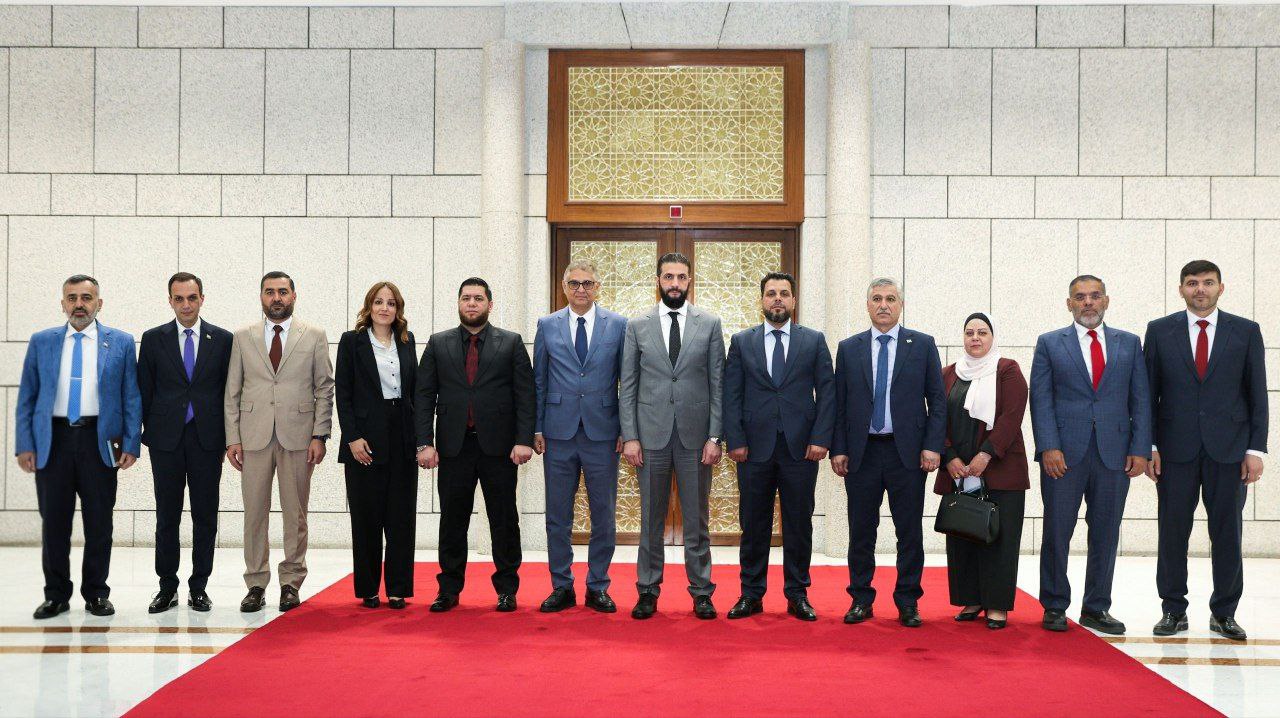
Syrian President Ahmad al-Sharaa issued a decree Friday evening forming a Supreme Committee for People’s Assembly Elections, a key step in the country’s political transition. Presidential Decree No. 66 of 2025 formally establishes the 11-member body that will oversee the legislative elections and help shape the next phase of national governance.
According to the decree, the committee will be chaired by Muhammad al-Ahmad and include figures such as Hassan al-Daghim, Imad Barq, Lara Aizouqi and Badr al-Jamous. It was formed under Article 24 of the Constitutional Declaration, which mandates the activation of legislative authority as an essential component of the transitional structure.
The decree outlines the committee’s main responsibility: supervising the formation of sub-committees to manage elections for two-thirds of the 150-seat People’s Assembly. The remaining one-third of the seats will be appointed by the president, a provision designed to ensure balance and oversight.
Seat Distribution Across Governorates
The decree details the distribution of the elected seats by governorate, reflecting population and regional representation. Aleppo will receive the highest allotment with 20 seats, followed by Damascus with 11 and the Damascus countryside with 10. Other allocations include Homs (9), Hama (8), Idlib (7), and Deir Ezzor and Hasakah (6 each). Raqqa will receive three seats, while Quneitra, the smallest allocation, will receive two.
The decision to structure the new legislative body in this format follows the recent dissolution of the former People’s Assembly, as announced at the Victory Conference. The move aligns with the transitional framework agreed upon in the Constitutional Declaration, which grants the new Assembly both legislative and executive authority.
International Engagement and Expectations
The formation of the Supreme Committee follows discussions between UN Special Envoy Geir Pedersen and Syrian officials in Damascus. Pedersen, speaking before the UN Security Council on May 21, called the development a critical next step and urged Syrian authorities to uphold principles of inclusiveness and transparency in the election process.
“I discussed with the interim authorities the need to make genuine efforts to ensure inclusiveness, transparency, and openness,” Pedersen said, emphasizing the importance of legitimacy in rebuilding national institutions.
Earlier, Pedersen had welcomed Syria’s establishment of the Transitional Justice Commission and the High Commission for Missing Persons, noting them as indicators of progress in the political track.
A Turning Point in Legislative Renewal
As Syria navigates a fragile political transition, the Supreme Committee’s formation marks a pivotal step toward institutional restoration. With the election process now in motion, the focus shifts to whether electoral bodies can operate with enough credibility and independence to meet domestic and international expectations.
The People’s Assembly, once seated, will hold full legislative and executive powers under the terms of the Constitutional Declaration, making its composition and credibility central to the broader political settlement.

